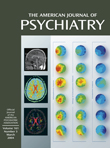Cognitive Decline in Preschizophrenia Patients
To the Editor: We read with interest the article by Rebecca Fuller, Ph.D., et al. (1) that concluded that significant cognitive decline occurred in preschizophrenic patients, accounting for the deterioration in academic grades between the ages of 13 and 16 years. We conducted a preliminary case-control study in Singapore with a uniform group of 30 first-episode schizophrenia patients with illness onset at age 20 years who were without a past psychiatric or substance use history. They were compared with 30 normal subjects who were closely matched for sex, age, and academic results at age 12. We found that academic decline, as documented on standardized national examinations, also occurred between ages 12 and 16 years, some 3 to 8 years before schizophrenia onset (2).
Indeed, the conclusions about preschizophrenic cognitive decline in the study by Dr. Fuller et al. (1) could be stronger if information were available to exclude other confounders of academic functioning, such as comorbid conduct, substance use, or other psychiatric disorders, as well as the contribution of other prodromal symptoms. While the contribution of prodromal symptoms was dismissed on the basis of finding of no correlation between age at illness onset and test scores, there may not be simple relationships between them. For example, test scores at grade 11 could be confounded by earlier scores, premorbid intelligence, and psychiatric comorbidities. Previous studies of prodromal symptoms of first-episode psychosis point to the presence of a variety of emotional and attenuated negative symptoms (3, 4), all of which also could contribute to the academic decline observed. Nevertheless, these appeared less likely, since despite limitations of recall in these retrospective studies, it appeared from detailed interviews with patients and informants that cognitive disturbances (disturbances in attention, concentration, or memory and deterioration in school results), rather than neurotic symptoms, were more specific to the psychotic prodrome and that cognitive symptoms appeared to be the first manifestation (4).
Indeed, the analysis of results from widely administered standardized school examinations at various ages, like that reported by Dr. Fuller and colleagues (1), represents a useful approach that, combined with more information on emotional and other functioning at those times, could yield valuable insights into the preschizophrenic process that in the future may lend themselves to early detection and intervention.
1. Fuller R, Nopoulos P, Arndt S, O’Leary D, Ho B-C, Andreasen NC: Longitudinal assessment of premorbid cognitive functioning in patients with schizophrenia through examination of standardized scholastic test performance. Am J Psychiatry 2002; 159:1183–1189Link, Google Scholar
2. Ang YG, Tan HY: Academic deterioration prior to first episode schizophrenia in young Singaporean males. Psychiatry Res 2004; 121:303–307Crossref, Medline, Google Scholar
3. Yung AR, McGorry PD: The initial prodrome in psychosis: descriptive and qualitative aspects. Aust NZ J Psychiatry 1996; 30:587–599Crossref, Medline, Google Scholar
4. Tan HY, Ang YG: First episode psychosis in the military—a comparative study of prodromal symptoms. Aust NZ J Psychiatry 2001; 35:512–519Crossref, Medline, Google Scholar



